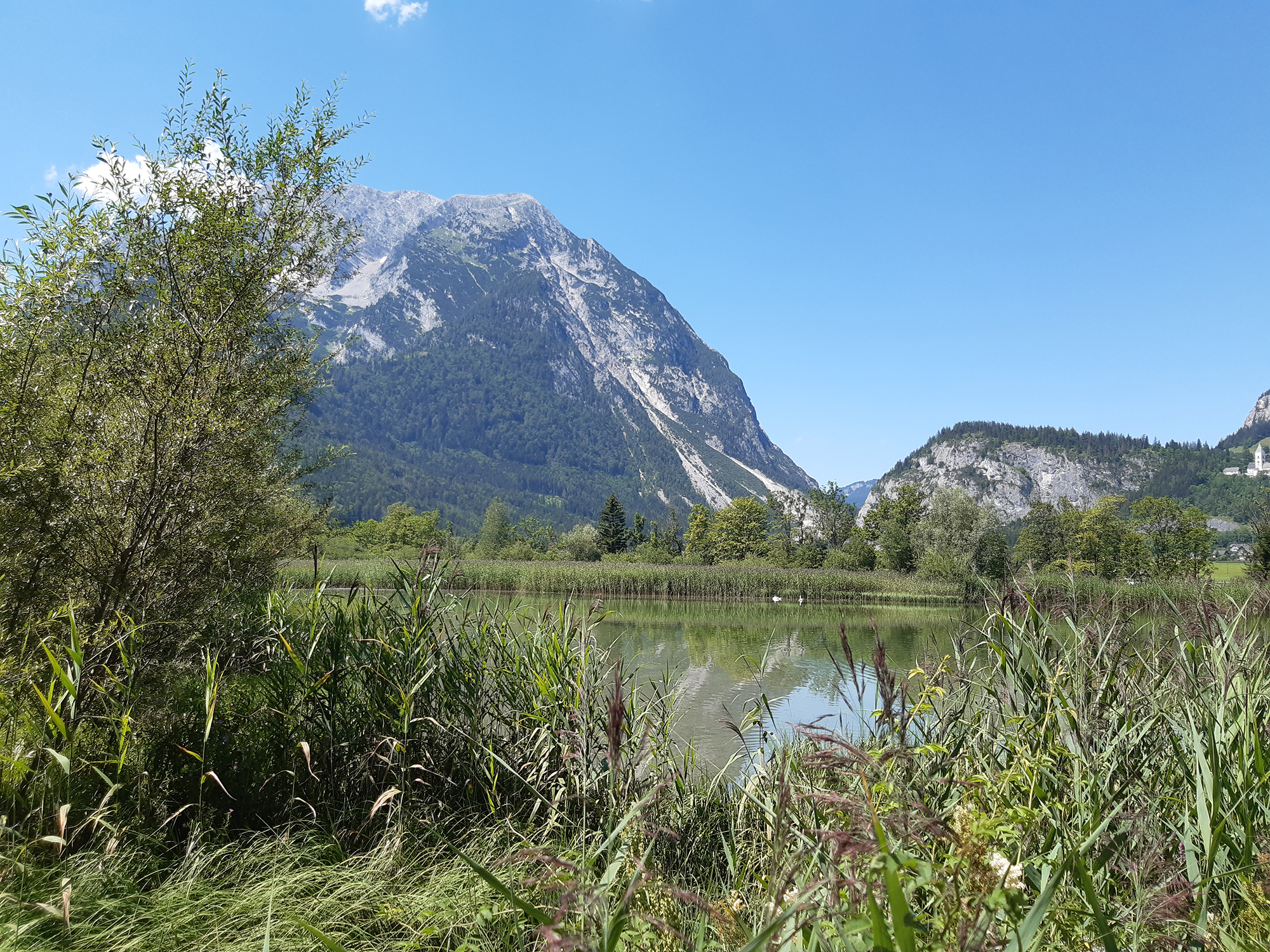Long-term wet biotope project
The aim of the long-term project is to systematically research the unique school biotope of the HBLFA Raumberg-Gumpenstein with students and to collect the results in a documentation folder. Interim reports will be made regularly and should also be published.
Building on the study results, a wide variety of detailed projects will follow and nature will be brought closer to our students and others.
Important completed projects that represent an essential basis for the long-term “School Biotope” project:
- Construction of a large observation stand (project: Karl Grabenweger)
- Current status recording and measurement of the school biotope (Project: Herwig Pieslinger & Reinhard Wolf)
Project development overview:
- Design and planning of a biotope information board at the rest area cycle path
- Maintenance and design of the existing infrastructure (elevation, footbridges...)
- Record and map biotope structures and biotope types on a small scale
- Plant sociological inventories
- Faunistic observations: Species recordings, behavioral observations of various animal groups: e.g. birds, insects, arachnids, fish, benthos, plankton...
- Species conservation projects
- Action days for other schools, under the motto: "Students teach students", "Understand nature"...
- ... this structure can of course be expanded!
Implementation: All interested teachers and students at HBLFA Raumberg-Gumpenstein can actively participate in the project. In particular, the areas of practice, chemistry and geography are invited by the biologists in charge to help implement the ideas.
Curator of Biology Michor Werner, Prof. DI
Non-binding exercise in wetland ecology and fisheries: Michor Werner, Prof. DI and Schaffer Roman, Prof. DDr.







